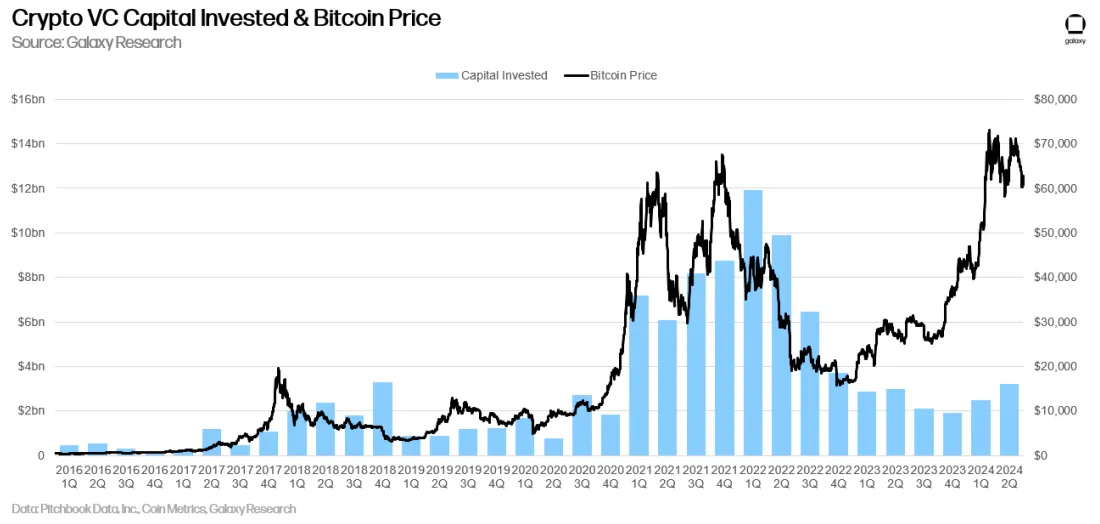That’s despite an ongoing breakdown in the relationship between Bitcoin’s price and capital invested in crypto startups for Q2, 2024, Galaxy Digital said in its latest analysis on Tuesday.
Compiling data from Pitchbook on Monday, Galaxy took stock of deals conducted in the last three months, which found quarter-over-quarter capital investment rose by 28% to $3.19 billion.
While the total deal count dropped by roughly 4% from the previous quarter, median valuations of startups before they received new funding surged to near all-time highs, rising from $19 million to $37 million.
Even still, venture capital activity has struggled to keep up with the rising price of the world’s largest crypto. During the previous 2021-2022 bull market, capital invested across early and late-stage startups stood at $12 billion, a time when Bitcoin’s price was hovering near $60,000.

That has since dropped to just $3.75 billion, remaining far below levels compared to bygone years, the research found. Galaxy points to several crypto-native catalysts and macroeconomic headwinds for the gap between price and capital invested.
Those include the launch of Bitcoin exchange-traded funds in the U.S. and higher interest rates, making borrowing capital for new projects more costly. Emerging sectors, including restaking, blockchain modularity, and Bitcoin layer-2s, have also contributed to the divergence.
Despite attracting less investment capital than during the previous Bitcoin peak, the crypto market rebound from late 2023 is driving competition and investors’ fear of missing out, Galaxy said.
“Allocators may be preparing to return in earnest due to the resurgence of liquid crypto,” Alex Thorn, Galaxy’s head of firmwide research and research analyst Gabe Parker, wrote Tuesday.
That’s good news for startups hungry for additional funding as interest could lead to increased venture capital activity in the later stages of 2024, the pair wrote. That could put this year on track to becoming the third-highest investment capital and deal count behind 2021 and 2022.
While the U.S. continues to lead in deals and capital among startups, regulatory headwinds in the form of opaque laws and hostile regulators could force companies to move abroad, Galaxy said.
“Policymakers should be conscious of how their actions or inactions could impact the cryptocurrency and blockchain ecosystem if the U.S. is to remain the center of technological and financial innovation over the long-term,” Thorn and Parker wrote.






